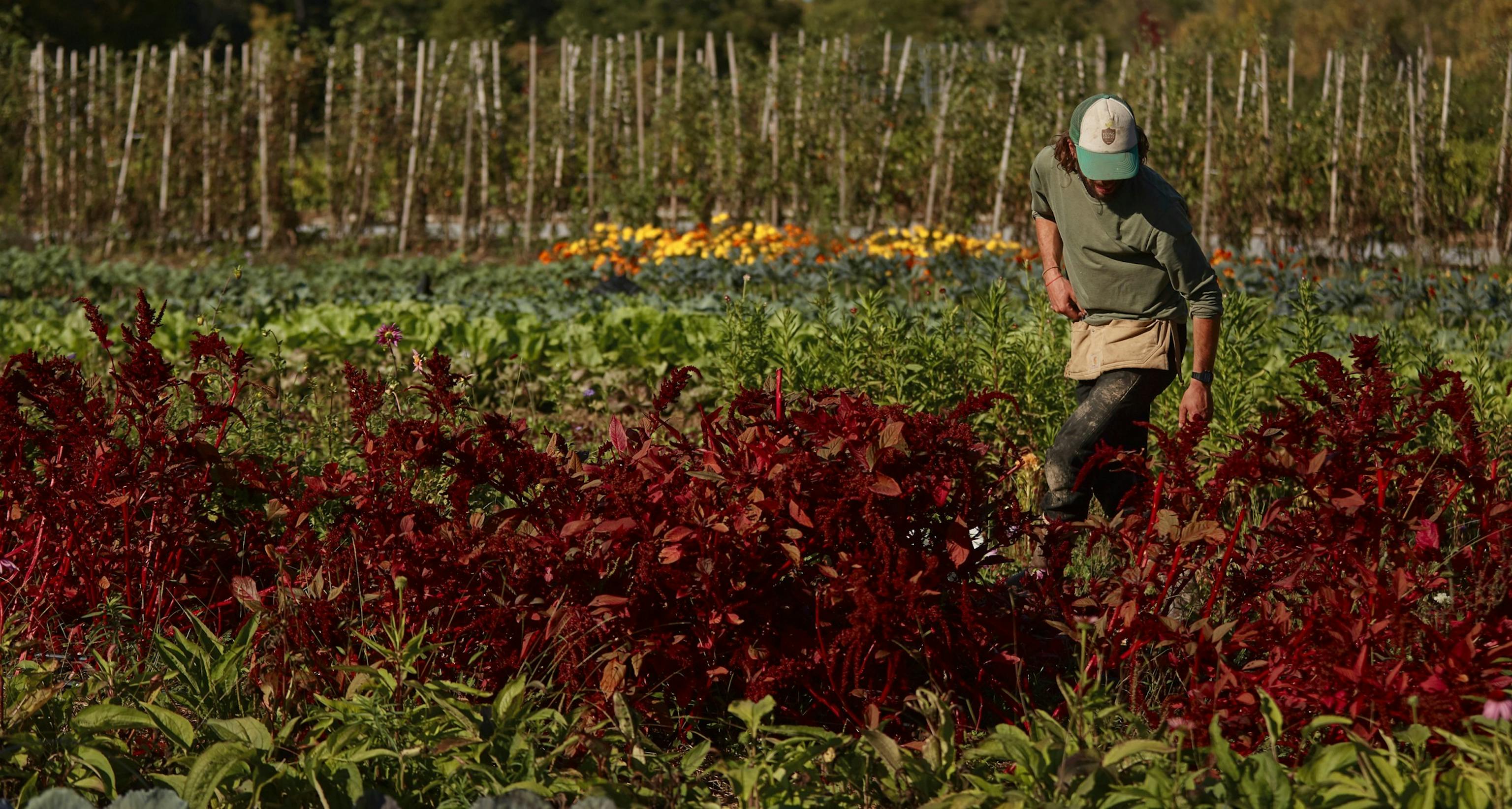
Nature
Nurture
On the farm with Mike Champagne
Words Andy Waterman
Photography by Chase Pellerin
There’s an age old discussion of nature vs nurture. Are great runners born or made? Does our upbringing impact our direction as adults? Do we have agency, or is our fate predestined in our DNA? Of course, there’s nuance to any such conversation, but every now and then you uncover a character whose genes and childhood seem so accurately to predict their adult lives, it’s hard not to wonder if fate allowed them any free will whatsoever.
Mike Champagne is such a character. The middle of three kids born to pro runners, he grew up in upstate New York in sight of his grandparents’ farm. Running was a family affair, as was farming. All three siblings went on to run in the NCAA - Mike for Iona - and now, since college, Mike has returned to the land, farming vegetables on a small plot in the Hudson Valley. Running is no longer a priority, but it remains a staple part of his life, and a source of many lessons he carries over to work on the farm.
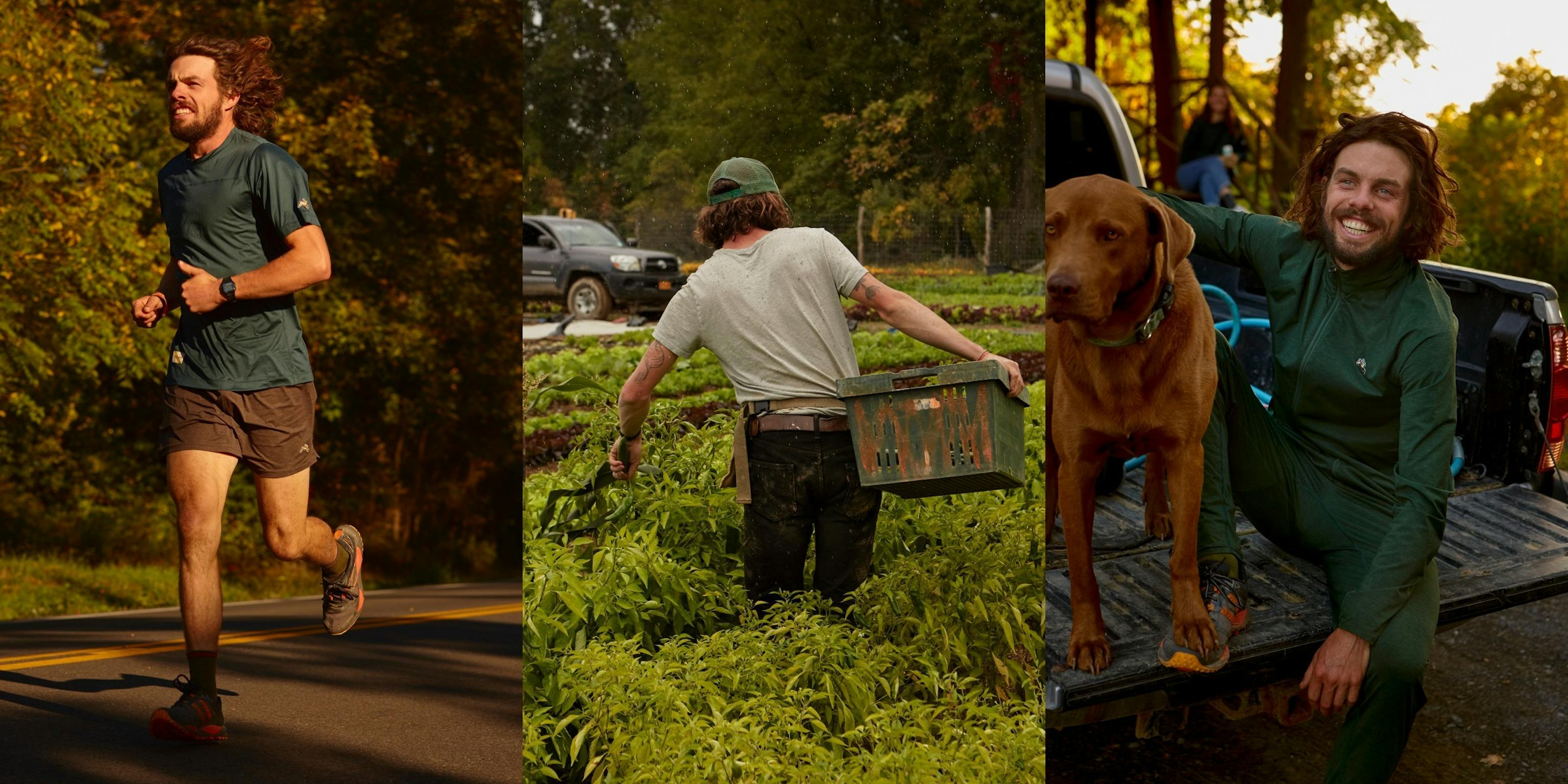
My parents were runners in the 80s and 90s. My mom went to the University of New Hampshire and my dad went to school in my hometown, Plattsburgh State. After college they were both sponsored by Reebok and they’d travel around and do a bunch of races. My mom went to the Olympic Trials for the marathon; she was the standout of the two. She did mostly marathons and my dad was more of a 10k/5k kinda guy. I think she won the Marine Corps Half in 1987 and then went to Trials. They would work 9-5 jobs and they bought our childhood home with the money from the races they won in the late 80s. Then they had my older sister, me and then my younger sister, but it was never like, ‘you have to be a runner,’ it just fell into place.
When I was a kid they weren’t running at an elite level, but I remember going to local races and my parents would run. It was always a thing we’d do. Christmas morning, we’d go for a run, all that cute stuff, running as a family.
I grew up an hour from Montreal, Canada. It’s like the most northerly place you can get in New York. We call it the north country, it’s the ice belt up there, so there were a lot of cold winter runs. My grandfather was a dairyman, and what he did was he decided to start distributing milk, so he’d go round and pick up all the milk in town, then mix it, pasteurise it and bottle it. He was like the milkman. He had a homestead I guess, and we grew up technically on the homestead. From the 50s to the 90s they had cows and sheep and chickens but by the time I came around, they were getting old, so it was mostly pigs, chickens and cows. My grandfather definitely has a big influence on who I am today. That was my mom’s dad. My dad’s dad ran for fun, but he ran 110 marathons in his life. He was dog-shit slow but he ran a ton and would always drink a lot of Heineken after each one. He passed the day I graduated from college, but up till the last six months of his life, he was walking 10 miles per day. He was just a guy who needed to keep moving.
From my childhood bedroom, I could see the pasture of the cows. I remember going to college, and I was like, oh yeah, most of these people have had to buy meat their whole life, and we never bought meat, because we always had pigs and sheep and cows.
By the time I graduated high school, my grandparents’ homestead had kinda become suburbia. So there was this funny little farm surrounded by huge ranch houses. So it wasn’t like a big farm community, but it’s definitely farmland and that’s a lot of the jobs. It’s very blue collar up there.
I played hockey in my freshman year at high school, but I broke my arm, so I just decided to focus on running. Pretty much immediately I realized, this is how I’m going to get into college, this is my path. Running, you kinda have to have some screws loose to want to do it and get out there every day. It’s kinda like farming too. You have to be driven. I find myself farming and thinking, man, this is so similar to running. Like, food: when I’m running a lot, all I think about is food. When I’m farming, it’s the same. My whole life has been surrounded by food and hard work: it goes hand in hand.
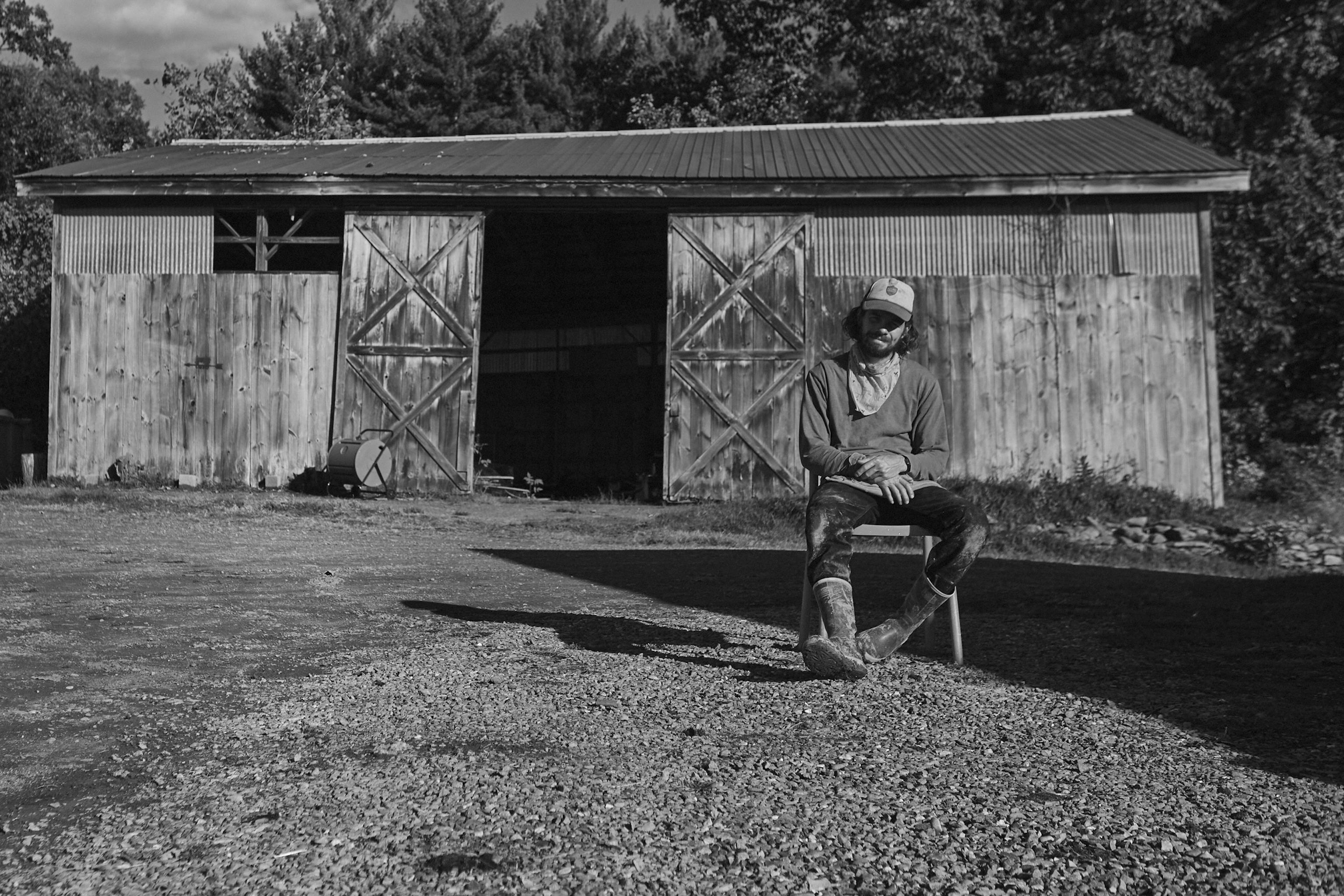
It’s all about foundations too. Say your typical carrot takes 56 days to be ready to eat. Same thing as saying Nationals is in 100 days. Training is like watering the carrot, fertilizing the carrot, giving it love and weeding it. You go really hard at the beginning, and then it begins to taper off. Just like running. At the start you’re doing huge 110 mile weeks in August, and then in November you’re running 70 miles per week and you feel like you’re not working as hard. In farming you put all this work in at the beginning, and then it turns to fall and all you’re doing is harvesting. You’re not weeding, you’re not watering that much, you’re not working in 100 degree heat. It’s so similar. Now I talk about it, I’m like, wow. It goes so hand in hand.
I went to college at Iona. When I got there, there were big names who had just left and big names who were still there, like Mitch Goose, who I had never heard of. It became apparent that I was not at their level! And of course, Lenny Korir was there… I have so many stories about that guy, he’s such a funny guy. When I first got there he was running like, 8min miles for 14 miles, and I was like, who is this guy? Why did we get him? And now here he is.
I didn’t do too well my senior year of high school, so I was on probation in my freshman year at Iona. Fast forward to sophomore year and I started running on the team and at that point, we had pretty deep talent - our fifth to 12th man were seconds apart. I was somewhere around 12th at that point, and you just get dragged along in race. It was great, getting PB’s every week. It had been a big change from living on the farm to living in New Rochelle, New York. Running was a big change too: instantly running way faster than I had ever trained and more miles than I had ever done. I found myself by junior year feeling very strong. I had good roommates: we’d run together all the time and get into trouble together all the time. It was this amazing, bonding experience. I give so much thanks to Iona and everyone who helped me to get into Iona. It was such a great team and community. I felt like I was at the place to be! I could run with anyone on the team and feel like I learned so much about the world.
We had fun, but at the end of the day, I wanted to go to Nationals. You get this groupthink - if we don’t act like idiots, we could do something big. In my small community at high school, I was a huge fish in such a small pond: I won every race, won State Champs a few times, but then you get to college, that pond is huge and you’re a minnow. That blew my mind. It’s easy to get caught up with the riff-raff and just kinda float away and not do well, but you get in the right group and there’s positive feedback. And ego! You remember these guys from high school and you don’t want them to beat you.
It was a special time in my life and I ran some good races. I was definitely built like my mom though: we’d go for long runs, and 20miles would feel easier to me than running a 10k on the track. To this day, I won’t run for two weeks, then I’ll go out for an 8-mile run and it’s fine. I’m just built for long steady runs. By the end of college I was feeling a little burnt out and I needed to take a step back from running and think about what I’m doing, not just for myself but for the environment around me. I ended up moving up to Maine and I started farming immediately.
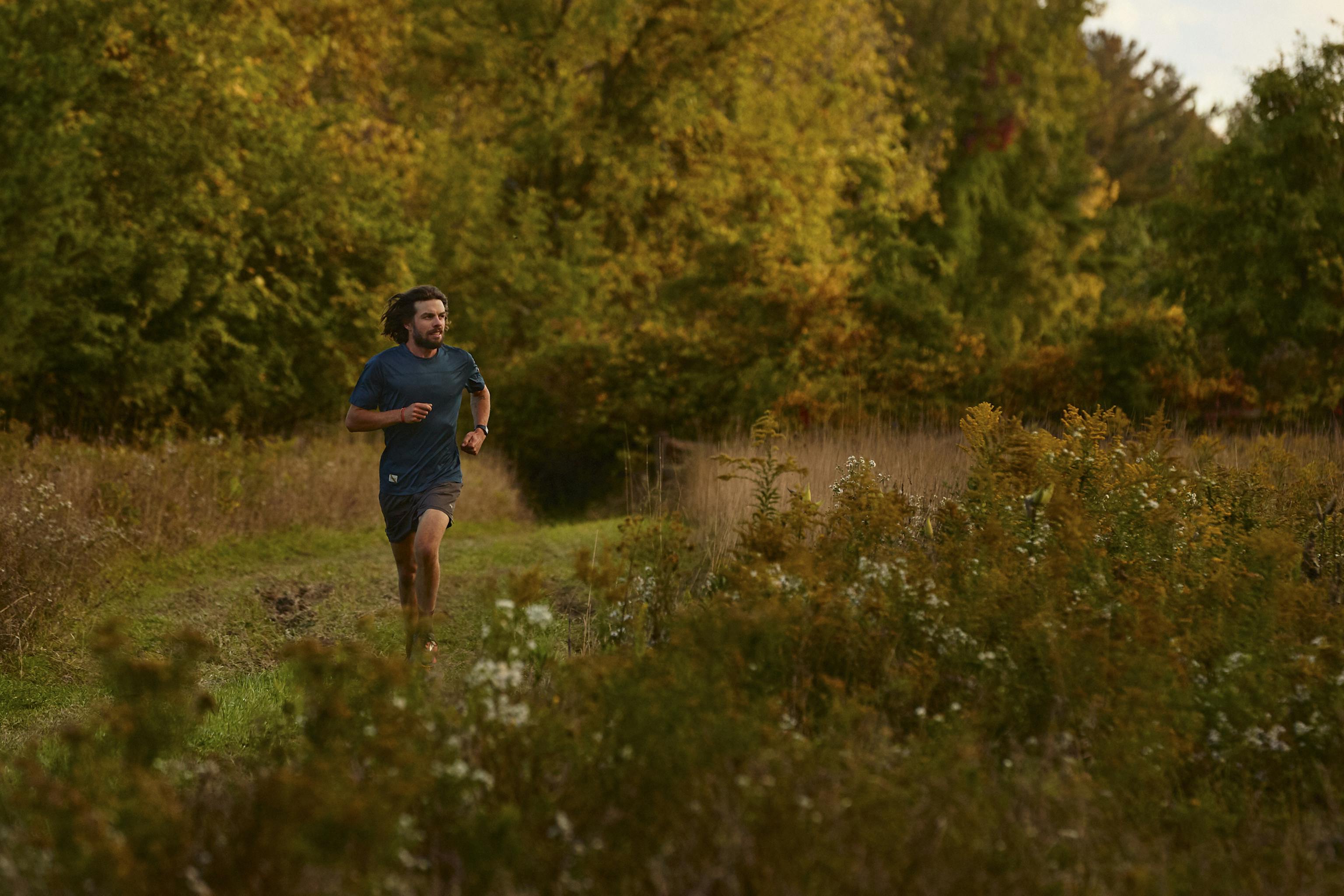
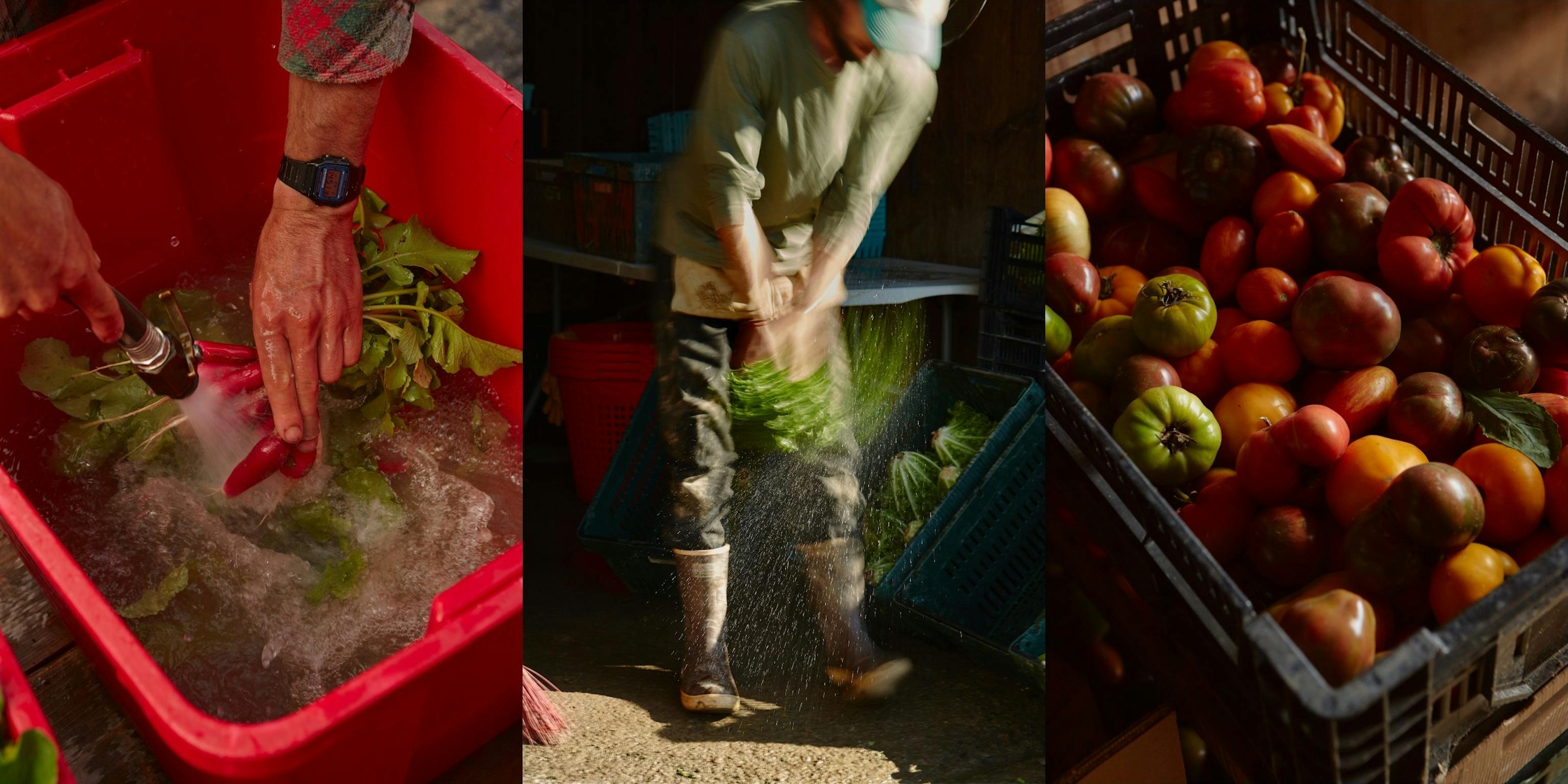
There was a long period where I didn’t run at all, but it was kinda like the experience I had at Iona, I was getting my mind blown by farming. For the first two full years I had an internship and I was just like, I want to be up here, in these beautiful farms with all this beautiful food. It took me a while to get to the place where I am today, where I have my own farm and manage that. It’s been a long road with a lot of hard work and not a lot of money, but it’s like pro running - it’s hard work and you’ve gotta really really love it. Because at the end of the day, what are you gonna do? Bring your U-Haul full of money into the grave with you? Or are you gonna do what you love? I feel wealthy in so many different ways; I’m healthy, I’m still able to run, I eat the food I grow, I live an enriched life. It was the same when I was running. I felt like I could breathe and I could do anything.
When I go to farmers markets, it’s great. It’s a small community, just like running. I feel like I meet the same people - the same type of people. My first farmers markets really reminded me of being at a track meet. You’re talking to the farmers, you get to know people, and then you start to see the same people every week, just like my childhood running, going to invitationals and meeting new people and then seeing them every weekend, and eventually thinking of them as friends.

At this stage of my life, I’m a vegetable farmer. I love livestock, but I can go away for two days, and the vegetables aren’t screaming at me. I have a niche market on salad greens - arugula, spinach, baby kale - and that’s kinda my main crop, but I also do carrots and beets and tomatoes and peppers and all that fun stuff. We farm two acres, and there’s only two of us so it’s a lot of work. We don’t use a tractor, we don’t kill the soil (we add a lot of compost). We’re very conscious of what we’re doing and how we’re doing it, what the carbon sequestration is like, so we can keep breathing and running and enjoying the beautiful green earth we live upon. We do farmers markets, we grow for a couple of restaurants and we have a small CSA (Community Supported Agriculture). We’re just trying to sell to the people who want the food, and so far we’ve found our market, which is great.
We grow in greenhouses in the winter and things do slow down. Winters are definitely a hard time, but I’ve been doing carpentry part time with a friend, a restoration carpenter, so it’s kind of nice to have the seasonal thing. So I’ll be doing farming three days per week in the winter and carpentry two or three days per week and we try to keep the greens coming year round. But yeah, in February, up here things get pretty cold, and the greens really start slowing down. It’s a much needed rest but it can be stressful.
Running has always been a stress relief, but right now, I’m so used to working 12 hours per day, that it’s kinda hard to slow down for a while. I’m rattling still, so I’m starting to train more because I’m so used to exerting so much energy. If I don’t run, my body’s like, what are we doing? Summer, I try to run, but it’s maybe twice per week. Usually from September to early June, it’s more like five days per week, and that’s because I love it. It’s my other true love. At this time of year, I always think, yeah, I’m going to do a marathon in May. I still have dreams about running races. And also when I’m running: I miss that feeling you get when you’re racing. It’s almost as if you’re flying: people around you screaming so you can’t even hear yourself think - I live for that. I’ve been in the fields for so long, I need someone to scream at me.
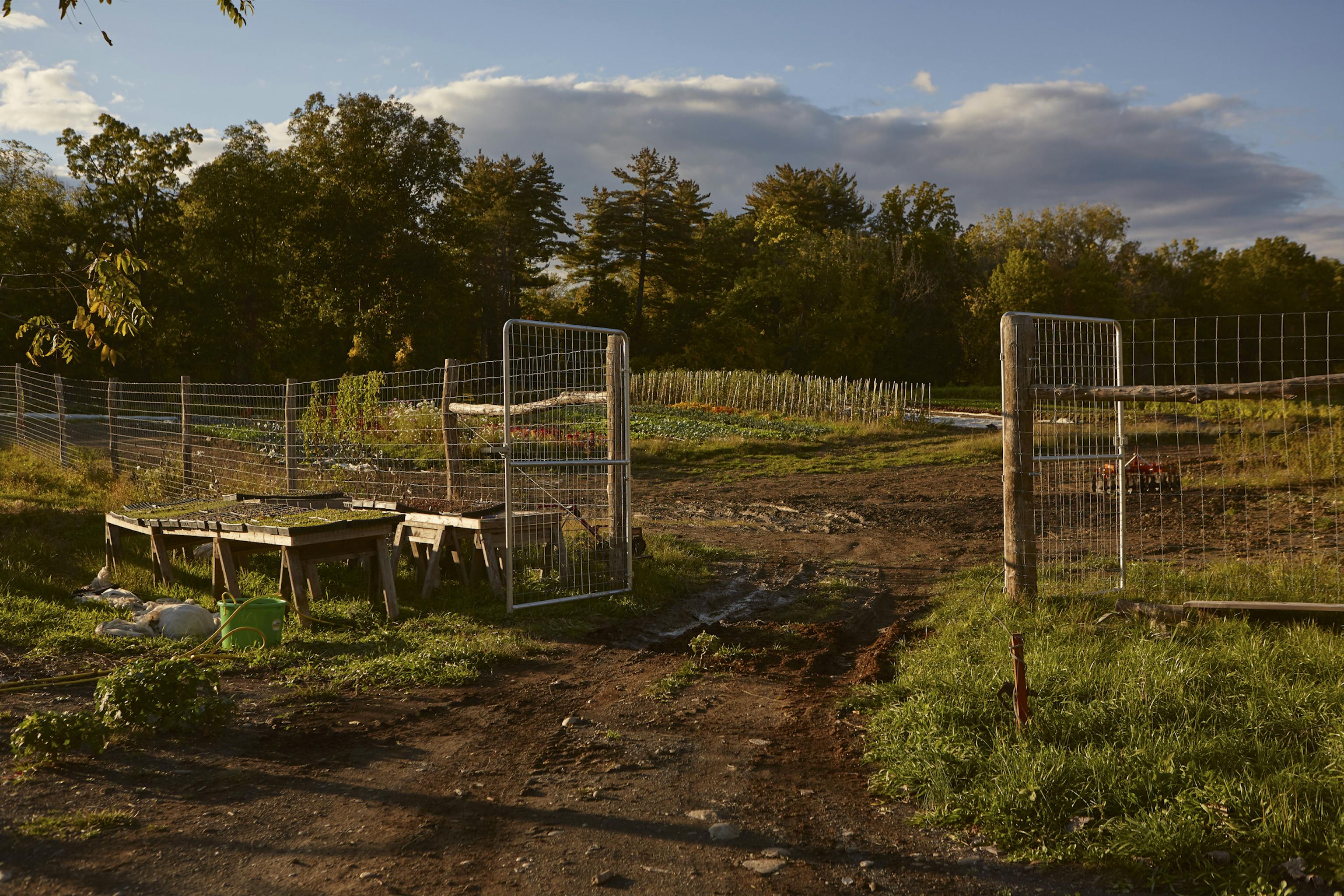
The area I live in, there’s a lot of people vacated New York City living up here. After Covid, I see a lot of people running around now. Being a runner, you know the kinds of people you want to run with, and I always think I should stop and meet some people. There’s no road races around me, but I’m definitely getting the itch. I think it’s the cool air. I’ve always loved to run in the winter. It’s in the air. I was thinking about Turkey Trots the other day. Up near where I grew up, someone was advertising a Turkey Trot, and I thought, yeah, that would be ideal. It just takes one race, and then it’s like, the itch has been found and you can’t stop scratching it.
As a business, Covid has been quite good for us. There are more people here, more people who want to eat the food I’m growing, and I don’t have to travel quite so much. People want to come to the farm and see it, and that experience makes them want to be a CSA member. If you’re a vegetable farmer and you’re not doing well this year, I would say it’s not a good sign. There’s just so many people who don’t want to go to the grocery store, and want to be eating food where they know where it comes from. I’ve felt it. This year has been a big year for small farms like me and all my friends.
It’s unfortunate that it took a pandemic to start it, but all you need is a push and then people start to realize that, oh yeah, I should be eating good, local food. Especially where I am, this pandemic has made the community stronger. Everyone waves to each other now. We’re all in this together. I feel like we’re onto something, we’re starting to think about one another rather than just me, me, me. I hope the pandemic just magically disappears, and we kinda stay hip to all this stuff. It’s been a crazy year, but it’s nice that people are coming together and buying local.
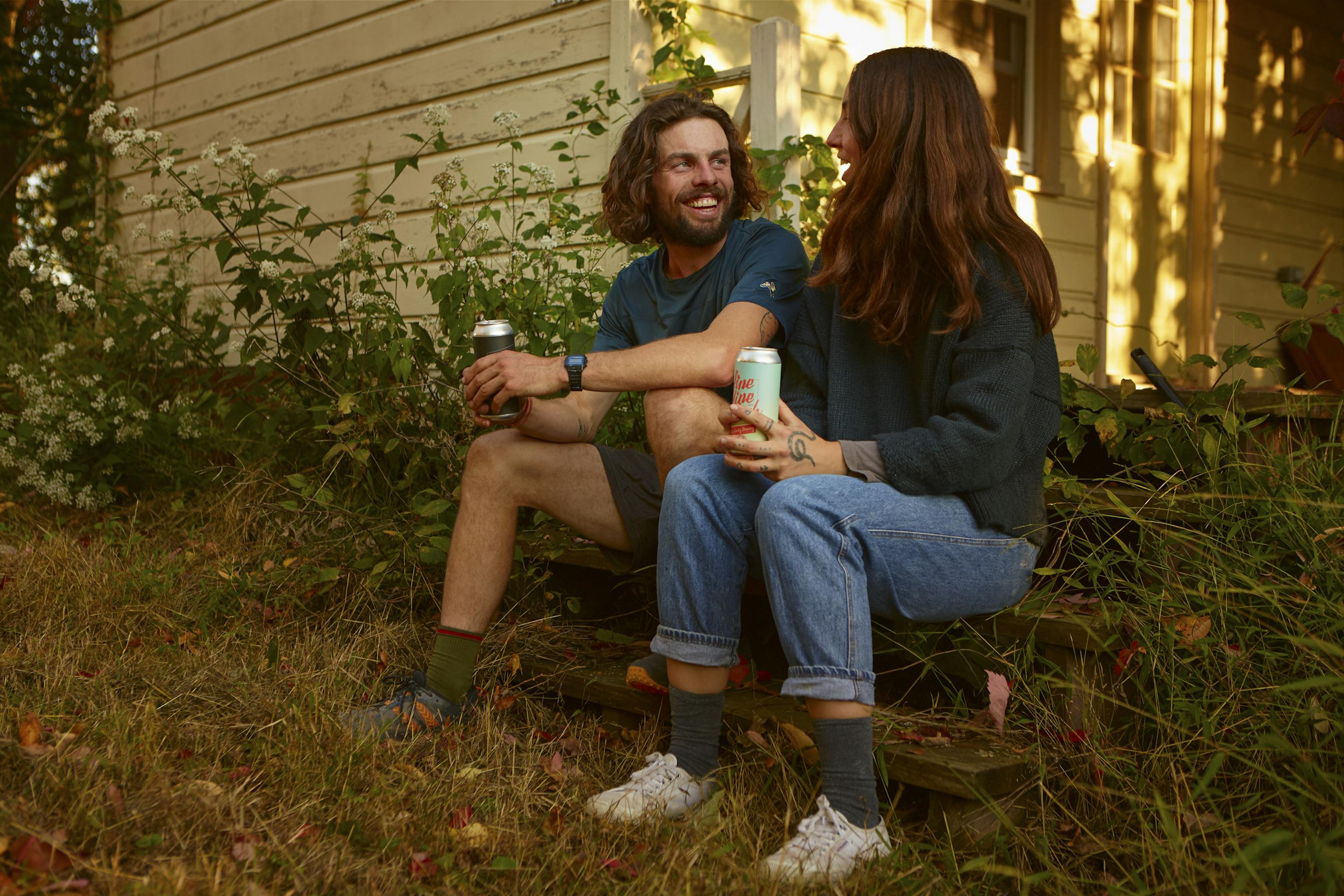
You can keep up with Mike’s farming adventures on instagram.
See more of Chase Pellerin's photography at cpellerin.com.